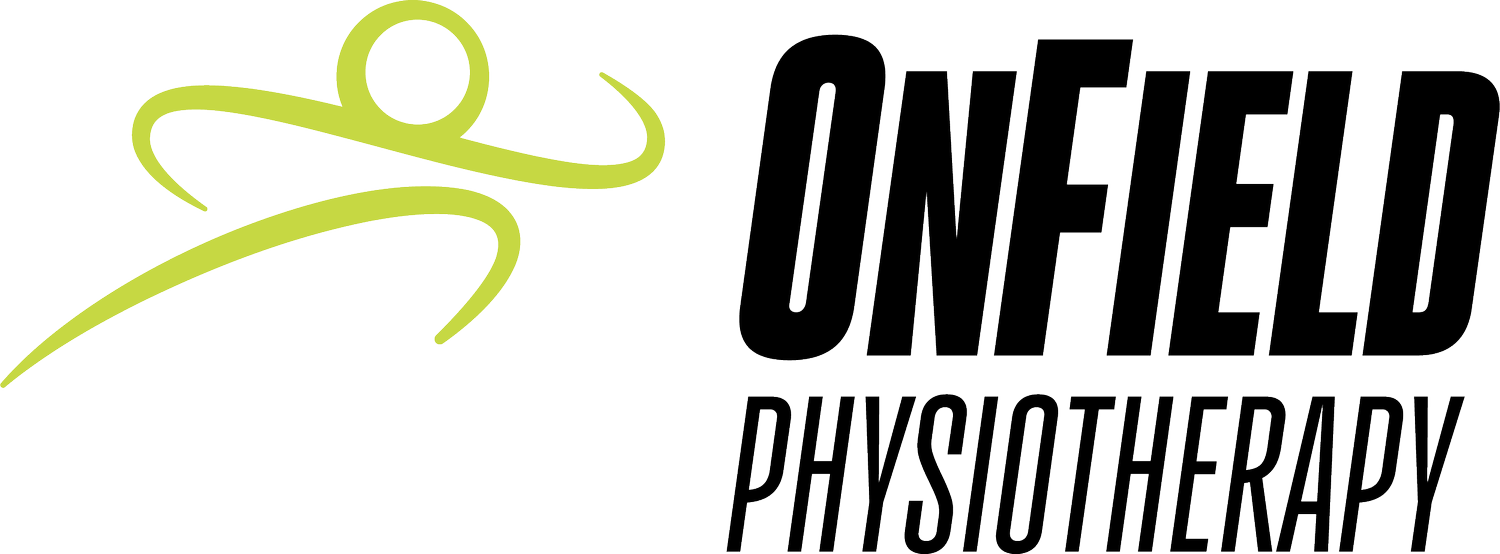Calf Injury (Calf Strain) Treatment in Perth’s Southern Suburbs
Calf injury stopping you from running, jumping or pushing off; feeling a sharp “grab” or “pop” in the back of your lower leg; at OnField Physiotherapy in Bicton, we provide sports-specific assessment and rehabilitation to get you back moving confidently and reduce the risk of re-injury.
Located next to Melville Plaza Shopping Centre; just 5 minutes from Fremantle; we work with runners, field sport athletes and active people across Perth’s southern suburbs.
What Is a Calf Injury (Calf Strain)?
A calf injury (calf strain) occurs when the muscles at the back of the lower leg are overstretched or torn; most commonly the medial gastrocnemius muscle; sometimes referred to as “tennis calf”.
Accurate diagnosis and grading are important; they help guide safe timeframes for walking, running and return to sport.
H2: Common Causes of Calf Injuries in Sport
Calf injuries are common in:
Running and sprinting sports; football, soccer, rugby, hockey
Court sports; tennis, netball, basketball; involving sudden push-offs and changes of direction
Explosive movements; jumping, bounding, rapid acceleration
Training errors; sudden increases in running volume or speed work
Reduced calf strength or endurance; poor ankle mobility; previous calf or Achilles injuries
Understanding how and why the calf was injured allows us to target the right contributing factors in your rehabilitation.
Calf Injury Symptoms and When to See a Physio
Typical calf injury symptoms include:
Sudden sharp pain or “grabbing” sensation in the calf during running or pushing off
Feeling or hearing a “pop” in the back of the lower leg
Pain when walking, going up stairs or rising onto your toes
Localised tenderness; possible swelling or bruising
Weakness or loss of power when accelerating, jumping or changing direction
You should see a sports physiotherapist if:
You felt a sudden sharp pain and had to stop running or playing
You are limping or unable to walk normally after the injury
Pain or tightness is not improving after a few days of relative rest
You have a history of recurrent calf strains or ongoing tightness that affects performance
How We Assess Calf Injuries at OnField Physiotherapy
At OnField Physiotherapy you will be assessed by experienced sports physiotherapists with extensive experience in professional and semi-professional sport; including WAFL, A-League and state programs.
Your assessment typically includes:
Detailed history; how the injury occurred; sport and position; training loads and footwear
Physical examination; palpation of the calf muscles; range of motion; strength testing
Functional testing; walking, heel raises, hopping, running mechanics
Screening for contributing factors; ankle mobility; hip and pelvic control; previous lower limb injuries
If we suspect a more significant tear, associated Achilles involvement or another condition, we can liaise with your GP or sports doctor regarding imaging (e.g. ultrasound or MRI) when appropriate.
Calf Injury Treatment and Rehabilitation
Early management focuses on:
Relative rest from aggravating activities; avoiding further tearing
Swelling and pain management; ice in the first 24–48 hours; compression; elevation where appropriate
Gentle range of motion exercises; to prevent stiffness without overloading the injured muscle
Rehabilitation then progresses through:
Strength and endurance
Targeted calf strengthening; both gastrocnemius and soleus; in bent and straight knee positions
Progressive heel raise programs; starting double-leg and building to heavy single-leg
Addressing strength and control at the hip and trunk
Running and loading progressions
Gradual return from walking to jogging, then continuous running
Structured increases in distance, speed and hills
Acceleration, deceleration and change-of-direction drills specific to your sport
Power and sports-specific skills
Plyometric exercises; hopping, bounding, jumping and landing mechanics
Sport-specific drills; repeated sprint efforts; cutting and agility patterns
Integration with your team training and conditioning program where relevant
Return-to-sport criteria
Objective strength and endurance benchmarks (e.g. single-leg calf raise capacity)
Sport-specific testing; sprinting, cutting, repeated efforts
Clear, individualised return-to-training and return-to-competition plan
All rehabilitation is completed using our on-site gym facilities; ensuring your exercises are supervised, progressed appropriately and aligned with the demands of your sport or activity.
How Long Does a Calf Injury Take to Heal?
Recovery time depends on the severity and location of the strain; your age; sport; and how early you start appropriate rehab.
As a general guide:
Grade 1 calf strain; often 1–3 weeks to return to sport
Grade 2 calf strain; typically 3–6 weeks with structured rehabilitation
Grade 3 tear; can take longer; and may require medical or surgical input
Returning too early; or without adequate calf strength and endurance; increases the risk of re-injury; which is common with calf strains. Our focus is on building resilient calves that tolerate your running and sport demands.
Why Choose OnField Physiotherapy for Calf Injuries?
APA Titled Sports and Exercise Physiotherapist; advanced training in lower limb injury management
Experience with elite and semi-elite teams; South Fremantle Football Club (WAFL Premiers), Perth Glory A-League, WA State programs
On-site gym facilities; allowing full progression from early rehab to high-level performance
Strong understanding of running and field sport demands; from weekend runners to elite athletes
Collaborative approach; clear communication with coaches, strength and conditioning staff and other health professionals when required
We understand the frustration of repeated calf strains and disrupted training; we work with you to create a plan that fits your goals, season and long-term performance.
Book an Appointment for Your Calf Injury
If you have a calf injury or ongoing calf tightness; early assessment and a structured rehab plan can significantly reduce your time away from running and sport.
Book an appointment with OnField Physiotherapy in Bicton today
Supporting runners, field sport athletes and active individuals from Bicton, Melville, Fremantle and across Perth’s southern suburbs.

